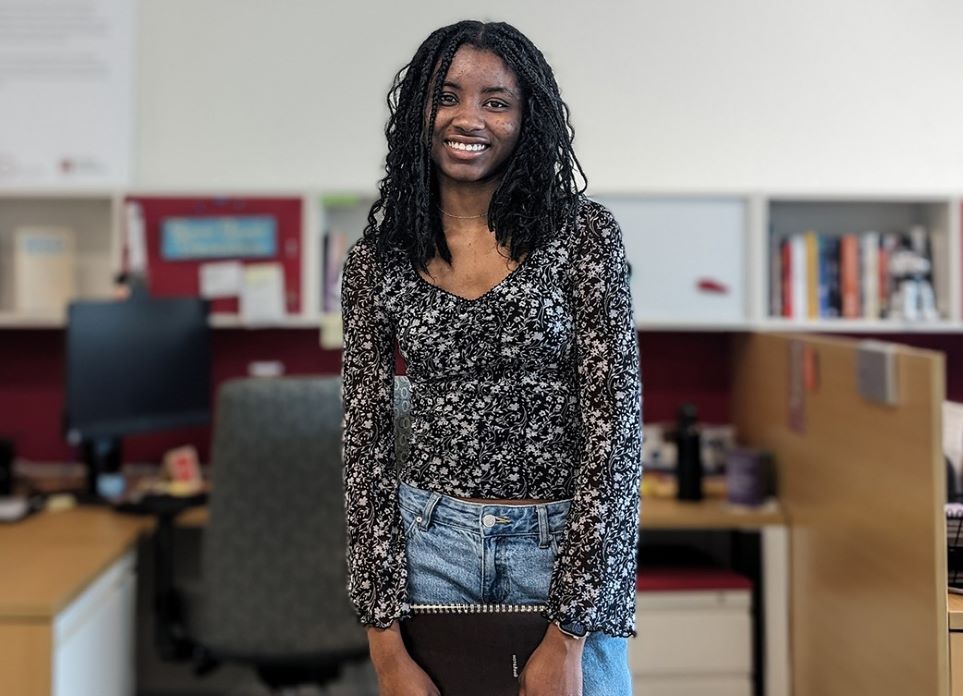Imanee Adisa is a freshman English major. Since January, she has been interning at Temple University Press, working in acquisitions. Read on to learn about how she found her internship and her experience at TUP.
What does your day-to-day look like at TU Press?
I’m an acquisitions intern, and I work ten hours a week. A lot of what the day-to-day entails is sending emails. I’ll send out peer review requests to potential reviewers for manuscripts and proposals, and if they’re interested, then I send them the materials they need to review. . After they agree, I put together their honorarium forms, so they can get compensated for their review. I log everything related to peer reviews in a spreadsheet, so the editors and I can keep track of what is in progress. I also log completed reviews in a system called PressWorks. There’s some variation of course, but that’s usually what I do each day.
Did you have a prior interest in the publishing industry?
I had considered publishing as a possible career path for a long time. I feel like that’s the case for a lot of English majors. I thought this was a great chance to see if I was interested in publishing as a career and to get some experience early on.
I will say that initially I didn't know much about university press publishing before I got into it. I think when most people think of publishing, they think about trade press publishing— so places like Penguin Random House and Harper Collins. It's definitely been a learning experience in that sense, but I like that it is connected to academia, which is just something I have thought about pursuing at some point. It’s nice that I get to see both worlds.
How did you find the internship?
I’m taking the English Career Seminar course this semester. Before we even had class, Tom McAllister posted to the course page about an internship at Temple University Press. It interested me, so I looked into it. I cold emailed Will Forest (Editorial Assistant and Rights and Contracts Coordinator at TU Press), interviewed, and the rest is history.
Has any part of the experience been surprising for you?
The sheer number of good learning experiences. I'm constantly learning new things about operations and processes, observing the way different fields intersect and understanding how all of it can lead to publishing. I’m a little surprised at how interested I’ve become in the business side of it—things like budgets, determining what will sell, things like that. I spend a lot of time in Excel, and I’ve had the opportunity to develop my skills with software like the Microsoft Office suite and Adobe Acrobat, which has been an added benefit.
What are some of your biggest takeaways from your time at TU Press thus far?
I think the communication aspect has been very valuable. I constantly communicate with others, and especially when there are multiple people involved, I need to convey things in a way that’s digestible for all parties. A person can say they have the skill of communication, but having to put the skill in practice, especially in a professional setting, can be different. I think this is probably one of the most valuable skills I’m taking away.
Mostly though, my experience here has made my future aspirations seem more attainable. Before this, internships and certain positions felt like something that had to wait until I had reached some undefined level of preparation—it felt like I had to make sure I had enough education or the right connections to get these roles. Now I feel like it’s about having the willingness to learn, to try new things and to go for it. You never know what will happen if you just try.
After this position ends, having had this experience, what would you like to do next?
Well, I do like the idea of staying in publishing. I also think it would be great to have a variety of different experiences—maybe an internship in the art curation world or in technical writing. From this internship, I've gained a variety of skills and the confidence to just go out there and try anything.

